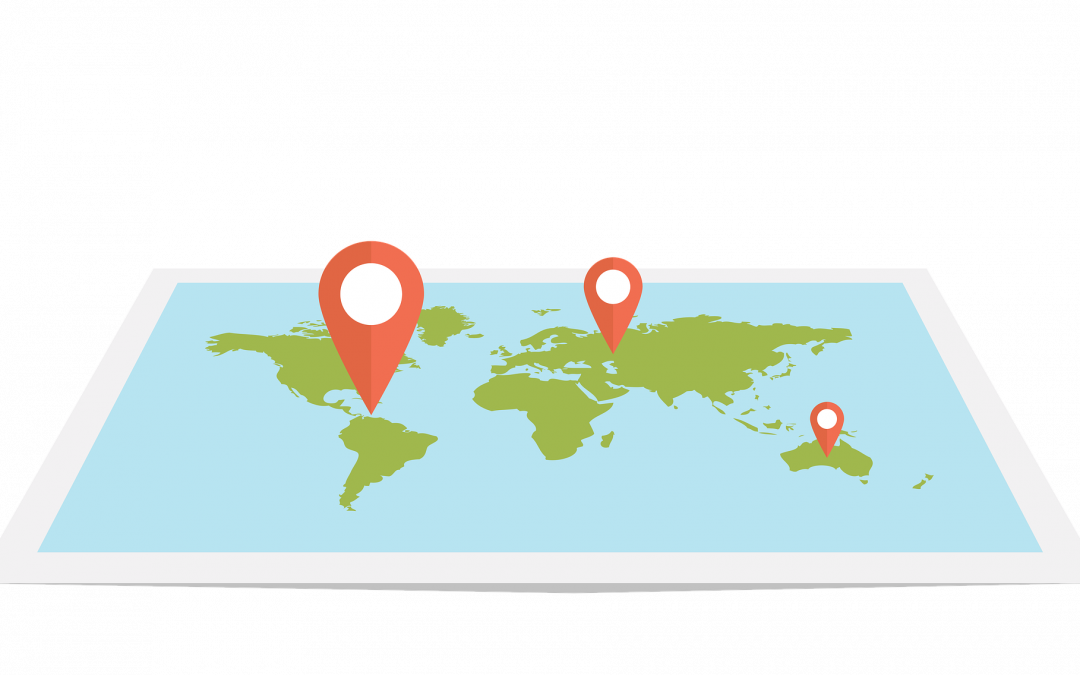
Mar 18, 2016 | Promotions
Understanding the link between multilingualism and business When looking for work, the first thing to do is create or update a CV that will convince an employer that you are the one for the job. A second, third, or even fourth language will surely open doors and improve your chances to enhance your career. In the USA, most people speak English, even if it is not their first language. However, not many Americans, whose mother tongue is English, can brag about being multilingual. In today’s globalized business world, it’s no longer enough to only speak one language. Due to insufficient language skills and cultures knowledge, numerous companies lose business and pass over contracts every year. Employers worldwide are ready to invest in quality workers with multi-language skills and may give preference to multilingual people. For example, since Hispanics represent 15% of the US population, Spanish is a highly predominant language for recruiters in the United States, along with Chinese due to China’s worldwide economic influence. With globalization and integration developing so quickly, multilingual people find themselves offered more job opportunities as compared to monolingual individuals. Whether the job is located in Canada, the United States, or the United Kingdom, almost any job calls for language skills, and not just for jobs like journalism, transportation, tourism, banking, but also positions in retail, catering, reception, to name a few. However specialist language jobs like language teacher, translator or interpreter, require a higher level of education and expertise. Enhance your career, bridge the Gap It is clear that adding a language to any CV can enhance your career. It multiplies your chances of...

Mar 14, 2016 | Promotions
The Importance of Localization and its Secrets Take a moment to look around you. No matter where you are, you will probably see items the entire world has heard about. Samsung TV? Nike shoes? An iPhone? All these brands have something in common; they are known all over the world. Whether you are Canadian, Chinese, French, American, Indian, or German, you can’t look at a can of Coke and wonder what it is. These companies have translated their products into so many different languages and exported them in so many different countries that you can now find them just about anywhere, even in the remote villages of Nepal nearby Mount Everest. These companies have all understood the importance of localization. The Big And The Giant So, how did big companies localize their products? What is localization? Localization is a process of product translation and cultural adaptation to account for differences in distinct markets. You can’t simply take a product made by your company and sell it in any country, as some content might be offensive to other cultures. Therefore it can be tricky to translate the brilliant idea and concepts involved behind the name of your company. For example, did you know that the name Coca-Cola comes from the coca leaves and the kola nuts used as a flavouring for the drink? Founder John S. Pemberton changed the ‘K’ of kola to C to make the name look better. Simple, concise, and the brand is known worldwide. Nonetheless, the brand encountered a certain problem when entering China. The original Chinese version of the name “ke-ke-ken-la” meant “bite the wax tadpole”....

Mar 10, 2016 | Promotions
Get your French Canadian on! A French festival in British Columbia? Yes, that’s right, the Festival du Bois is coming! For those who didn’t know, Canada is divided into two regions: English-speaking and French-speaking. French is predominantly spoken in Quebec, where most of Canada’s native French speakers live, and it is Canada’s second official language. Unfortunately, Quebec is on the other side of Canada, and if you live in B.C. and don’t want to travel that far, just visit the Festival du Bois to get in touch with the French Canadian culture right here in British Columbia! When and where is the Festival du Bois happening? Every year, at the beginning of March, the festival takes place in the Maillardville neighborhood of Coquitlam, British Columbia, which is about half an hour from Vancouver. But what is so special about this festival? It is the largest and most attended Francophone festival on the west coast of Canada! Many people from Vancouver and its neighboring districts come here to speak French, have a lot of fun, and taste some real French Canadian food. The French language – an important part of the Festival du Bois! Most of the visitors speak French while they are here, but don’t worry! You won’t need a French translator to attend this special festival. But I really recommend leaving your comfort zone and trying to speak this beautiful language, even if you haven’t tried it yet! Words like “Bonjour” (Good Morning), “Salut” (hello) or “C’est quoi?” (What’s this?) will do. And don’t hesitate to ask people what all the words mean; no one is born a master....

Feb 26, 2016 | Promotions
What is Coltan? Nowadays we tend to spend most of our time looking at our phone or working on our computer. You might not realize it, but if you have a phone or laptop, you have one of the most valuable minerals in the world in your possession: Coltan. Simply put, Coltan is a mineral. But it is not just any mineral. This compound consists of a mixture of Tantalum and Columbite, some of the most much-appreciated minerals of our time. It’s very resistant to acids, transmits electricity rapidly (80 times faster than copper), and supports large loads, so it is used in almost all modern electronic circuit components. Where do we find it? Coltan can be found in many places around the world but 80% of it is located in Congo. To mine it, they dig caves in extremely bad conditions. They get it at a very low cost and sell it at a very high price. The Problem brought by Coltan Congo is the perfect place to exploit labor. They force people to work in bad conditions and earn poor wages. Afterward, the mineral is introduced in devices worth a small fortune. Raising Demand The world keeps developing so it needs more technology but the quantity of Coltan is decreasing. So the demand goes up along with the market value. The smartphone: Friend or foe? Most of us have at least a phone in our possession so we are all responsible for this situation. How are we destroying ourselves? All the time we need more technology more often: better communication, find a location, etc. But it is also...

Jan 20, 2016 | Promotions
The Spanish Language With 410 million native speakers the Spanish language is the second most-spoken language in the World. It is the official language in 21 countries above all and it counts many different accents. As one of six official languages of the United Nations, it is the official language of the European Union, the Organization of American States, and the Union of South American Nations, among other international organizations. The language of the Castile region of Spain became the official Spanish language thanks to King Alfonso’s efforts in the 13th century. The Royal Spanish Academy (Real Academia Española), created in the 18th century, is widely considered the arbiter of standard Spanish. It produces authoritative dictionaries and grammar guides. Although its decisions do not have the force of law, they are widely followed in both Spain and Latin America. Although Spanish comes from the Iberian Peninsula as a descendant of Latin, today it has far more speakers in Latin America. This is mostly due to the Spanish colonization of the New World Arabic was the next big influence on Spanish after Latin and today, the language exerting the most influence is English. Spanish has adopted hundreds of English words, especially those related to technology and culture. Need a translation in Spanish? No problem! Do you need a translation in European Spanish or Latin American Spanish? We can help you! Here at Lingostar, we have professional translators who are native speakers of both Spanish languages. We also have a range of other services to offer such as revising, updating and localizing your content into more than 100 languages. And if you...

Jan 15, 2016 | Promotions, Translation News
What makes Quebec and French Canadian special Quebec is a ‘special’ Canadian province in many ways, but it is especially known for being the only province where English is not an official language! It is well known that the people of Quebec fought for the French Canadian language despite the huge English influence. Finally, in 1977, the French Language Charter set French as the only language for advertisement and education in Quebec. Despite this, it is important to refer to the French dialect in Quebec explicitly as Canadian French in order to differentiate it from the Metropolitan French dialect from France. French people often claim that they have trouble understanding Canadian French. Let’s explore some of these potential differences. Pronunciation differences The most notable differences between Metropolitan and Canadian French are probably to do with pronunciation. Whereas French, in general, contains a very rich vocalic inventory compared to other languages, Canadian French has even more vowel sounds (around 15) than that of France. Quebeckers also tend to reduce their use of consonants significantly and to use abbreviations extensively. The use of articles (le, la) is similar to Portuguese. Instead of saying “le” or “la” (the), they will often say “el” (or l’) and “a”. In some cases, “le” becomes “l apostrophe” in front of a consonant. Vocabulary in French Canadian changes from French European French Canadian vocabulary is distinctive from the vocabulary of Metropolitan France. This is not surprising considering that since its arrival in Canada, the French language was exposed to many different influences. It couldn’t possibly have developed in the same manner as in Europe. Some even...






















